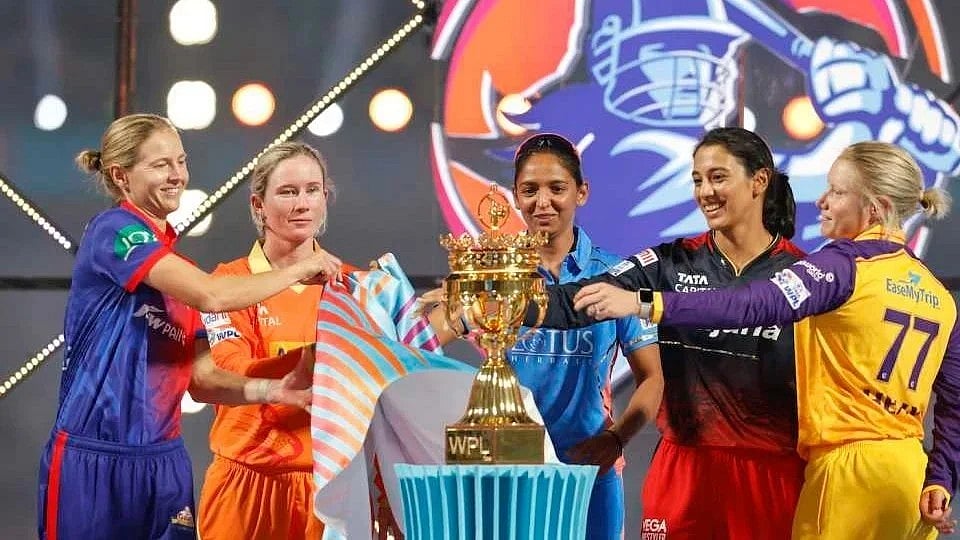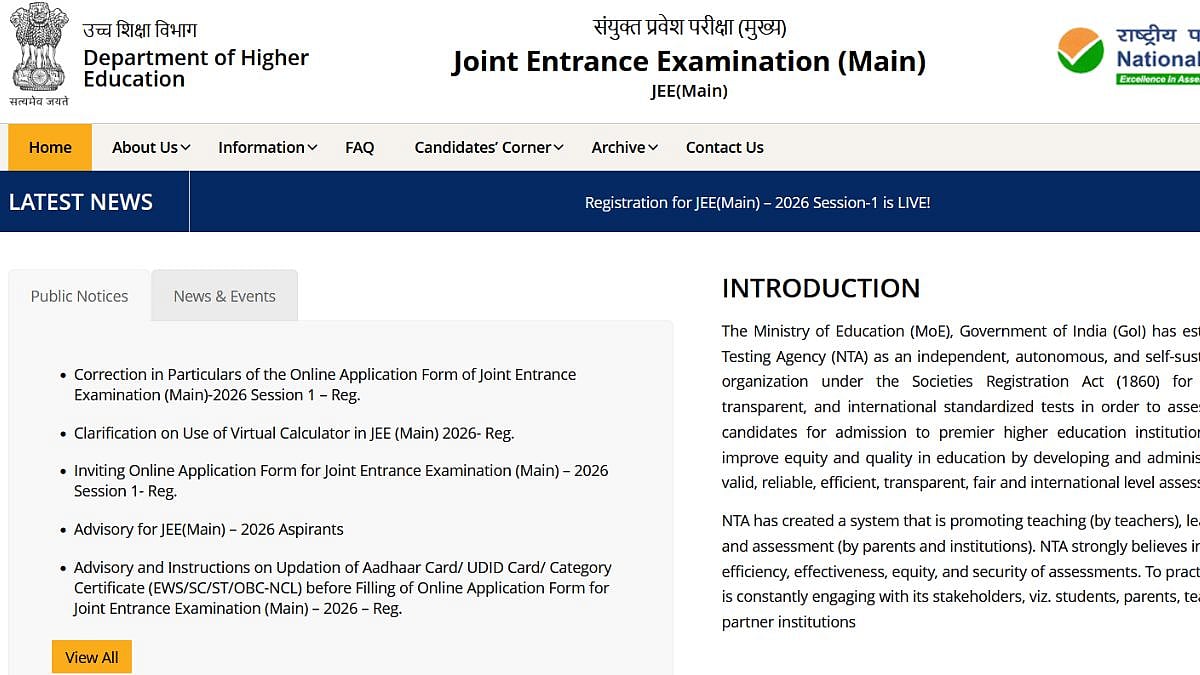Not all great stories begin with a bang, sometimes there are early setbacks, other times a bit of soul-searching, before the big picture begins to find semblance
Tell us about your background?
I did my entire schooling in Delhi and passed 12th from Delhi Public School, RK Puram. After finishing my schooling in Delhi, I did my engineering in computer sciences at MD University Rohtak. After finishing my engineering I joined the family business with the Aakash institute to add value to my father’s enterprise. My family has many people in the education space, my father, my uncle & my aunt, everybody has always been in this space. When I joined my father, at that time I only wanted to contribute to the areas of advertising and operation, as I felt that my father has always been very busy with his academic work and I could add value outside of academics in the business. But while I was helping him out at the Aakash Institute, I also started my own venture in advertising and production. I saw this as an opportunity and I saw that as a company we were spending a lot of money on advertising and marketing, where I thought that to make the system more systematic and ensure our communication message is more clear & more punchy, I could contribute to the creatives, with some of the clients. This was kind of my first experience outside of education as a job and entrepreneurial experience but that did not last for a very long time because I chanced upon a bad client who defaulted on his payments. I was left with nothing and that was a great lesson for me at a very early age of seeing a massively successful business on one side being run and on the other side trying something new and failing at it.
You were not prepared for failure?
When you are starting, you are full of energy and lots of hopes and lots of success stories around and you tend to feel that you cannot fail and you know you have your credentials behind you and your education. You just do not think of failing but when it fails it’s a rude shock and you either accept it and give up or you want to introspect and find out what went wrong and what I could have done differently. And findings for me were that I was not prepared for the fundamentals of business like finance, operation, HR, sales lead collections, execution strategies, and hiring the right kind of talent. So I decided to look into furthering my education. I joined an executive program at the National University of Singapore (NUS) in Singapore. It was a 3-week program but that was completely a turning point for me. I really enjoyed the education but I also felt that I needed to do a full time comprehensive program like an MBA for complete rounded thinking.
Did you do your MBA?
Yes, I did. I came back to India and I planned for some of the US universities and at the same time the Indian School of Business (ISB) at Hyderabad was also coming up as a great institution for management. So, I went through the entire process, took my GMATs, application process, interview etc and got through. That was one great learning experience and an MBA from a great college gives you a fantastic peer network for life as well as an understanding of business which I quickly realized I needed.
Were there placements at ISB?
Yes, they were and I sat for the campus process and got a job at Infosys in the Enterprise Solution Practise and was posted in Hyderabad. My family was surprised that I was heading for a campus job but he understood and decided to let me chart my path. I spent a year in Infosys first in Hyderabad and later in Bangalore and I learned so much in the short stint I had at Infosys. It had 60k to 70k employees – a mammoth of an organization and they had very well-defined systems and processes. And I was impressed that you know the founders are not involved on a day-to-day basis and how the whole organization is working on autopilot and people are owning up and being accountable for their projects and their deliveries and they are contributing every day for their clients and their client satisfaction. While in Aakash it was one person calling the shots for every day and for every small little decision.
After a year, I joined Cognizant Technology Solutions (CTS) in Chennai, which was also a big company but growing much faster and challenging old boys like Infosys and TCS. I could see a bit of start-up culture in that company and while it was completely a tech company it had its processes at the same time very agile to accommodate changing talent & market space. So I got a taste of working for both types of companies.


What did you pick up from your stint there?
I cannot pinpoint specifically because I did not spend a lot of time there but I was in a very tech consulting role and there were some subconscious learnings that were getting set in my mind which I realized when I came here at Aakash, which was a completely centralized system of working where every decision was made at the head office. I could see that at that time since my father was running it as a single person so every decision, every suggestion, every strategy was coming from his table and as a result people would not own up. Nobody would question even if his decisions could lead to a problem or if there could be a better way to do it. In places like Infosys and Cognizant, you know if your objectives are being met by a far more efficient method then you have the liberty to go and choose that does not necessarily work according to what your director or your reporting manager has suggested. Empowering people is an efficient way to run the enterprise, which I saw at my first two stints.
Inn 2005, I was planning to take off to Australia on a 4-year project from the company. My family was taken aback on hearing this and was surprised that joining the family company was not top of mind for me. I told my father that we don’t exactly work well together which is when he offered me to go to a new location like Mumbai where Aakash would be a new brand and take on an Aakash franchise myself to set up business afresh in a new location. He told me that I would have to pay him royalty since I was going to use his brand name and expertise. I took up the venture but could not understand the lesson and value behind this ask of his. Very soon I realised that as a key learning for me and my first lesson that you can’t take good things for free in life and you can’t take it for granted as well, you have to value what has been built by somebody else and protect it.
After my three years successful stint in learning and running the business, I came back to Delhi and joined my father in 2009. He and I sat together to take the Aakash promise ahead by putting the right kind of processes, systems and people in the company
How did Covid impact Ed-tech?
Nobody expected that the offline education system would come to a complete halt when Covid struck. But when it happened we just took a moment and we asked ourselves, what is it that we have in our hands, let’s all of us as a team go all out in making those things happen. Fortunately, the EdTech experience of setting up Aakash Digital for the last 9 years came in handy for us. We were able to pivot all our offline students and courses to our Aakash Digital platform within a week’s time and turned the company around in the most difficult time we had ever seen since our existence.
And what did you do in Mumbai?
In the three years, I ran the franchise in Mumbai where I learned the essence and meaning of running a business. Things like how to manage the faculty members, marketing & sales staff, daily administration and how to manage the expectations of the customers. And once I was there I could experience the gaps in the business that needed attention. There was a shortage of teachers, shortage of trained staff to depute at outside locations. There was no proper technology in place so no real online systems, reporting or lectures either. And when I came to Delhi, those same problems existed in Delhi branches but at a bigger proportion. That is when we started experimenting with putting deeper systems, SOPs as well as technology with video lectures. I think as Coviid hit us all those learnings of running and starting digital came to our users where we were able to switch all are students from offline to online in a matter of about 10 days I think that saved the organization from going into complete darkness because we looked around at that time people didn’t know what to do and whereas we had about 9 years of experience of having our video content having our life tutoring platform and teaching them for last 7 years. We had the whole training module ready where we could train all the offline teachers into online teachers and convert our offline content into an online ebook content and video content so I think that was a game changer for us. We took our digital platform base 30-40,000 students to make it available for over 2,00,000 students overnight. We tested our quality of education, our videos, our technology, and nothing broke down. From April 1, 2020, when we resumed live classes for our students, firstly from our platforms and then switched to the larger Microsoft Teams platform. Today, we are completely in the zone where we can offer online as well as offline or combined Hybrid programs. Those in our physical classes can get their doubts sorted online and those online can visit our centers If they need to.
Online worked for you, many NEET toppers were from Aakash
Yes, the toppers came mostly from our hybrid programme and that is the biggest proof of online learning. If you do it the right way and if you engage the students in the right way, you can deliver significant outcomes and performances. And that one can take up an online programme and yet fulfill one’s dream to become a doctor or an engineer from a top college.
You give your father all the credit for where Aakash is today?
He worked very hard and created a niche for the Aakash brand with his commitment to the students. The journey from 1988 to 2008 was an incredible story of substance and brand creation that he led to give a solid foundation to the Aakash business & brand. I joined him fully in 2008, the brand and the culture was in place and now our job, as a team, was to take it to a new level. Ours is a proven model and there are countless testimonials of his vision. There are times when one feels like cutting corners to benefit cost or speed to market. As a principle, he always encouraged to remain focused on quality and long term outcomes rather than short term benefits.
What about online for young kids, makes sense?
For young kids, online cannot be the only form of teaching, it can be an additional or a supplemental part of learning. I would not recommend it to be the only way of imparting knowledge/education.
Because education is not just the content it is also the way it is taught, the depth in which it is taught, the body language of the teachers, and their stress on certain key subjects and topics. When you are in class there is cross-questioning and brainstorming which helps to learn deeper and you can think deeply or expose yourself to a wider set of solutions. After having spent 2 years in a completely online education environment, we have come to a conclusion that while physical education forms a strong base, you can use technology to take it to the next level. For instance, if students cannot come to our centers, for whatever reason and want to complete their syllabus then we help them with our online services. Education has to be a healthy mix of offline and online education.
Did online penetrate the rural market?
Sadly, not as much as it should have. The government will play an important role in sorting this. As it is now, post covid era, only 25% have access to online education in India. That number has to increase and the isolation has to be curtailed. But what Covid did was it tried to match the expectations and aspirations of students in remote areas all over the country and that number has gone up. Earlier the universe for rural students was a 10-km radius, not 10,000 kilometres. Today, with their online devices they can read what a Harvard professor is saying and what is going on at MIT. It has come a long way from being zero and now at least they are aware that if they are getting stuck there is somebody out there to whom they can go to meet or access their you know remote content. I think what created the divide was that devices which are usually one per family became the education device in that family and all had to make do with that one device. Not all could afford individual devices, high speed non-stop internet connections and uninterrupted power supply.
Lots of players got into ED-Tech and many got out of it too? Do you expect a shake-out?
Ed-tech is a rising industry and seeing the opportunity people start offering services if they think they have the skill set. But time will eventually separate out good ones from bad, as you have to offer quality and a differentiated product to stay in the game. Those who can’t maintain or continue to evolve will trickle out. I have attended a lot of conferences and I met founders of a bunch of Ed-Tech companies and I see that they have created products without having taught ever in their life. I feel you need to be part of the ecosystem to understand its needs to identify the problems to be solved or gaps to be filled. You need to be connected to your audience to be able to bring out a quality product and lead the curation of core offering.
Mergers and acquisitions are part of the game today?
Yes, if different synergies can complement each other for a better outcome, they will happen. With regards to Aakash and Byju’s, we complement each other on the offline and online modes. We are the offline & hybrid provider and BYJU’s maintains the digital portfolio. BYJU’s leverages our test prep brand equity, track record, academic excellence and large offline local centres network. We have opened about 75+ new offline centres in India, and more than 25 in the South of India alone.
Aakash is a very strong brand for Medical and IIT test prep offline space whereas Byju’s value is known as a brand that is high on technology and strong in the K12 space. I think, it made a lot more sense for us to join hands and going forward a lot of these consolidations will happen with other players also where they would see either acquiring another player would give them a complementary capability which they could not themselves develop or they don’t want to do it because their brand stands for something else. If you want to reach out at All India level or a global level you have to service them with the requirements and the needs that they have which you may or may not be having as part of your core capability so you go ahead and acquire those capabilities or acquire those companies and put together as part of your umbrella offering as part of partnerships and acquisitions.
How do you solve your faculty needs, am sure there must always be a shortage?
At Aakash, we built a system-centric model of teaching and not a teacher-centric business. The answer to this lies in my stint in Mumbai when I ran the franchise and realised that faculty is a fundamental requirement in this business and if you don’t have great teachers then you cannot create great outcomes for your students. And as a result you cannot attract new students because you could not produce a good result to showcase. This becomes a very important element and for us it becomes very important to be solved so that we can have a continuous supply of teachers with good calibre, ensuring there isn’t shortage of teachers for our growth as well as current operations to deliver effective courses. We did a completely fresh approach. I myself come from a campus, where I saw the whole campus placement programs and I felt why can’t we as a company go out to campuses of top institutes and try to get some really good candidates who are interested in teaching as a career. In 2009 we started our first campus placement program and in the first year we got about 200 candidates interested & excited to join us. These were top institutes like the IITs, NITs, IIITs, Agri Universities and other such. We got them here in Delhi, trained them for about 3 months and then introduced them to our classrooms. These newly minted teachers themselves had cleared these entrance exams, so they knew the rigour and since they had learnt these subjects as a pure science in physics or chemistry or mathematics or botany, they were able to deliver the content very well. We gave them training on our content, question papers and the way to teach. We brought in our expert teachers and master trainers to give them the flavour of teaching. In about 3 to 4 months, they were ready to enter into the classes and I think that gave us a solution to the overall quality-teacher availability problem. While we were doing this campus, we also went ahead and started large lateral placement programs all over the country where teams would go to other cities in India, camp there for 2-3 days and find candidates from local colleges and universities, shortlist them and then bring them to Delhi to train them. Finally introduce them to our existing & new centers wherever we had an opening. We have kept that inflow of quality teachers going for us to continuously grow and ensure that wherever we had to open centres, they always had a good supply of teachers available with them with right benchmarks in terms of their teaching capabilities and knowledge.
But teachers quit coaching companies fast?
It was a very common practice that has happened in the coaching sector for a long time. When a teacher starts to become popular, over the years, the teaching starts to get in demand and everybody wants to be in that teacher's class. Teachers understand that and are aware of the power of that and sometimes they, if their needs or their expectations are not met by the organization, they tend to leave along with their students. This has been an issue statement for the coaching sector for a very long time and I think we also faced problems like these in the early stages. A fundamental decision or culture that my father as a founder established was to not create a star teacher model but to create Aakash as an organization which has the star system model. A model that will create more teachers who can teach well rather than banking on one or few star teachers who can teach well. Using or utilising this aspect we create a teaching asset base, so that people believe in the system rather than a teacher. When you go to an Aakash center for admission, you say you want to study in a specific teacher’s class then the answer would be that all teachers are the same level. You have come to the Aakash branch, so have faith in us and we will give you the right teacher that you need. This is the messaging that we have always promoted. We have always tried to keep our teachers excited, we appraise them, we have promoted them with an exceptional career path. In fact, there are teachers who had come in as trainees in the institute and now they are running multiple centers as directors of a region or a state. We introduced this career making system in the coaching sector that also helped us solve the good teacher exodus process that most of the other coaching struggle while we were building these processes.
Did you ever teach?
Running our Mumbai franchise centre was the most important part of my business learning journey. I still remember that while I was there, after 2 days of the first set of classes of a newly formed maiden batch at my franchise, our Physics teacher left without giving any notice. So I could not let the class go empty, I had to pull out the books and start making my notes that I used to enter the class to keep students engaged for about 6 days. That was the only time where I took a class till the new teacher or replacement came in.
Do you enjoy it?
It is so surprising that before I took that class I had a stage fear and when you are in a situation like this you just have to go ahead and face it. After the first few nervous sets of classes I became so confident then that I continued it by doing seminars and motivation sessions for students in schools. I started enjoying it and that stage fear absolutely vanished. I now thank the teacher who left , which gave me an opportunity to face the students and before that I would have never gotten into giving these lectures and seminars. Not only the seminars, it really helped me to connect with my audience (parents and staff) and give them the vision of the organization. Over the years I felt that whether it is your own team or your customer base, they must interact with the founders, they must interact with people who are behind the show, who are setting the vision of the organization. They should know why we are doing, whatever we are doing. It is a student-parent- teacher triangle, or as we call it a joint venture, where each stakeholder has to play an important role to make the venture successful.
Is Ed-tech responsible for turning the noble art of teaching into an industry?
It is a sector or place where you can't get into over monetization. You need to make that profit so that there is enough excitement to do it and there is an availability of enough resources for you to plough it back into the system to further improve it. The cycle has to go on because if you don’t make money on it then how do you put it back to solve the problem that you went out to solve. There has to be some profit or return on your efforts but if that becomes the core objective then there is a problem. Unfortunately, increasingly many people are jumping into this sector to create valuation models instead of business models or profit models, which in my mind is not the right object.
Any data on women versus men's pursuits in higher education?
Our observation is that as far as medical entrances are concerned, we see that more than 55 to 60% of appearing candidates are female candidates and reverse in the JEE or IIT entrance exams, where more than 60-65% are the male candidates. Our understanding is that females feel more comfortable in a medical profession and not so much in the engineering profession but having said that this number of 60% in engineering used to be about 75-80% because of the nature of jobs that were available in engineering many years back. But now with not all jobs being floor jobs, more women are taking up JEE coaching to eventually take up a career in information technology or data sector.
What is your opinion on NEET
Consolidating all state medical entrance exams into one exam was a very good idea. What it does is to give students, who are sitting in let’s say Delhi, an access to colleges in other parts of the country like West or South or East and vice versa which otherwise would always be limited to a state’s domiciled candidate. This is the right approach for colleges to offer an education system that has a more diverse classroom structure.









